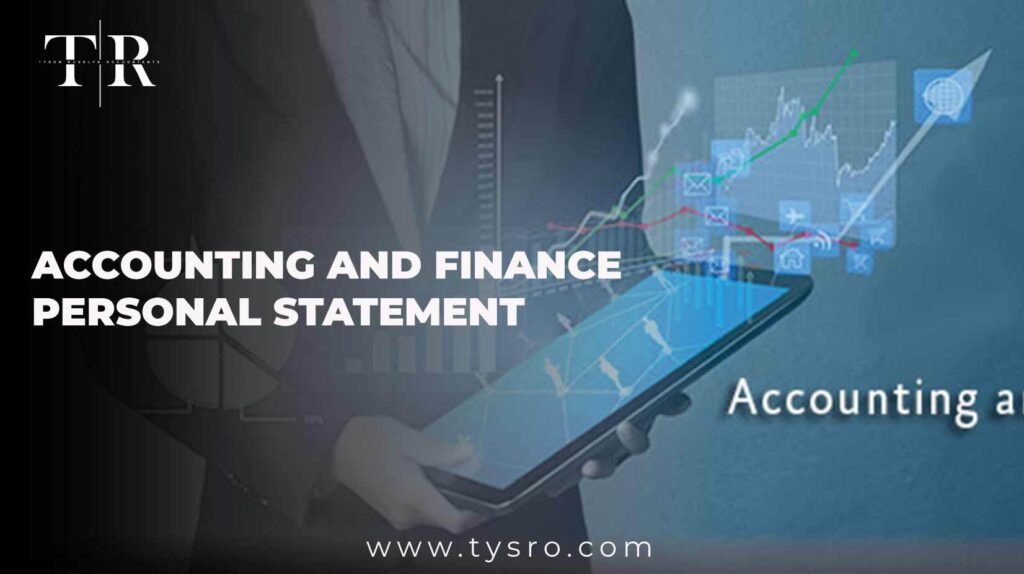Introduction to Your Accounting and Finance Personal Statement
Crafting a compelling accounting and finance personal statement is crucial for anyone aiming to pursue a career in this field. Whether you’re applying to a university or a specific finance program, your statement is your opportunity to showcase your passion, skills, and suitability for the course. In this guide, we’ll break down the process step-by-step, providing tips, anecdotes, and resources to help you create a standout personal statement.
Why Your Accounting and Finance Personal Statement Matters
A well-written personal statement for accounting and finance can make a significant difference in your application. It provides admissions officers with a glimpse into your personality, aspirations, and why you’re a perfect fit for their program. For example, when Sarah applied for her master’s in accounting, her statement highlighted not only her academic achievements but also her practical experience and long-term career goals, making her application stand out.
Step-by-Step Guide to Writing Your Statement for Accounting and Finance
1. Understand the Requirements for Your Statement
Before you start writing, it’s essential to understand what is expected in a personal statement for accounting and finance. Each program may have specific guidelines or questions they want you to address. Visit UCAS for a comprehensive guide on what universities look for in a personal statement.
2. Brainstorm Ideas for Your Accounting and Finance Personal Statement
Spend some time reflecting on your experiences, skills, and aspirations. Ask yourself:
- What sparked your interest in accounting and finance?
- What relevant experiences have you had?
- What are your long-term career goals?
For instance, John, a prospective finance student, recalled his part-time job in a local accounting firm where he managed invoices and learned about financial regulations. This experience became a central part of his statement, demonstrating his practical knowledge.
3. Create a Draft Outline for Your Statement
Organize your thoughts into a structured outline. A typical personal statement for accounting and finance might include:
- Introduction: Briefly introduce yourself and your interest in the field.
- Academic Background: Discuss your relevant coursework and achievements.
- Relevant Experience: Highlight any internships, part-time jobs, or volunteer work.
- Skills and Attributes: Explain how your skills align with the program.
- Career Goals: Describe your future ambitions and how the program fits into your plans.
4. Write the Introduction for Your Statement
Your introduction should capture the reader’s attention and set the tone for the rest of your statement. Consider starting with an anecdote or a memorable experience. For example, you might describe a moment when you realized your passion for finance during a high school economics class.
5. Discuss Your Academic Background in Your Statement
Detail your academic achievements, particularly those relevant to accounting and finance. Use this section to showcase your strengths and how they prepare you for the program. Mention specific courses, projects, or assignments that sparked your interest in the field.
6. Highlight Relevant Experience in Your Statement
Discuss any practical experience you have in the field. This might include internships, part-time jobs, or even relevant coursework. Link to any online resources or certifications you’ve obtained, such as those from ACCA, to provide additional context.
7. Showcase Your Skills and Attributes in Your Statement
Explain how your skills and personal attributes make you a strong candidate. For example, if you have strong analytical skills or excel at problem-solving, provide examples of how these skills have helped you in previous experiences.
8. Outline Your Career Goals in Your Statement
Clearly state your career goals and how the program will help you achieve them. This shows that you have a clear vision for your future and have thoughtfully considered how the program fits into your plans.
9. Edit and Revise Your Statement
Once you’ve drafted your statement, take the time to revise and refine it. Check for clarity, grammar, and spelling errors. Consider asking a mentor or friend to review it for feedback.
10. Finalize Your Statement for Submission
Ensure that your final draft aligns with the program’s requirements and presents a polished, professional image. Submit it with confidence, knowing that you’ve crafted a strong personal statement that highlights your passion and qualifications.
Additional Resources for Crafting Your Statement
For further guidance on writing your statement, consider visiting the following resources:
Conclusion
A well-crafted personal statement for accounting and finance can significantly enhance your application. By following this step-by-step guide and utilizing the resources provided, you’ll be well on your way to creating a compelling statement that highlights your strengths and aspirations. Good luck!


